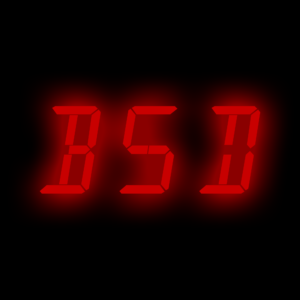 This is the seventh and final part in our seven-part series on the BSD series of operating systems.
This is the seventh and final part in our seven-part series on the BSD series of operating systems.
If you know your Unix history, then you’re aware that there are two great sides to the family: SysV and BSD. Today, the reality is that they’re Linux and then a long tail of everything else. Part of that everything else is the BSD family of operating systems, which live on in FreeBSD, OpenBSD, NetBSD, and DragonFlyBSD.
I loved doing this series because it lets me geek out on Unix. With all of these, you have to roll up your sleeves a little further and get your hands a little dirtier than on mainstream Linux, which has become very simplified with systemd, apt/yum, etc. With the BSDs, I had to do a lot more in terms of getting into config files, etc. And that was me installing very common software, not building from ports, etc.
FreeBSD is by far the user-friendliest and if I was going to show someone BSD, that’s where I’d start. It’s very modern and has some unique features, as well as a very pleasant working environment. I think a competent Linux admin could sit down at a strange FreeBSD system and quickly figure it out, though the more exotic things like jails, dtrace, etc. would need a little reading. And of course, being BSD, the documentation is excellent.
OpenBSD is a cult, but also a pretty interesting project. Not only has OpenBSD spawned a whole tree of interesting software (e.g., OpenSSH) but the OS itself has a lot of interesting ideas, especially about security. However, it expects a lot of its sysadmins and definitely has domains where it’s stronger.
NetBSD and DragonFlyBSD just seem too problematic to me. NetBSD was just a constant arm wrestle, but I do understand that’s me coming into it cold. If I was a die-hard NetBSD guy, I’m sure I could whip through setting up a box, configuring it, etc. Still, I would expect things like installing packages to be easy, not a chore.
DragonFlyBSD also didn’t “just work” out of the box. If that’s because the project is still somewhat experimental, that makes more sense.
The issue I usually run into with BSDs is that it’s a small userbase, which means that you run into problems and bugs that Linux people don’t. This is not fair, but the Linux monoculture is a real thing. Sure, something like PostgreSQL will be tested on FreeBSD, but a random package off GitHub has probably only been tested on Linux. People should adhere to standards; they adhere to Linux which has become the standard.
I have a long history with OpenBSD and even now, I have bastion hosts and firewalls running on it. I’ve liked the way the project has grown. I’ve never played with FreeBSD as much but this experience has intrigued me.
So what are your thoughts? Are you a BSD partisan? Did I get something wrong? Do you have a different take? Please let us know in the comments below!























Leave a Reply